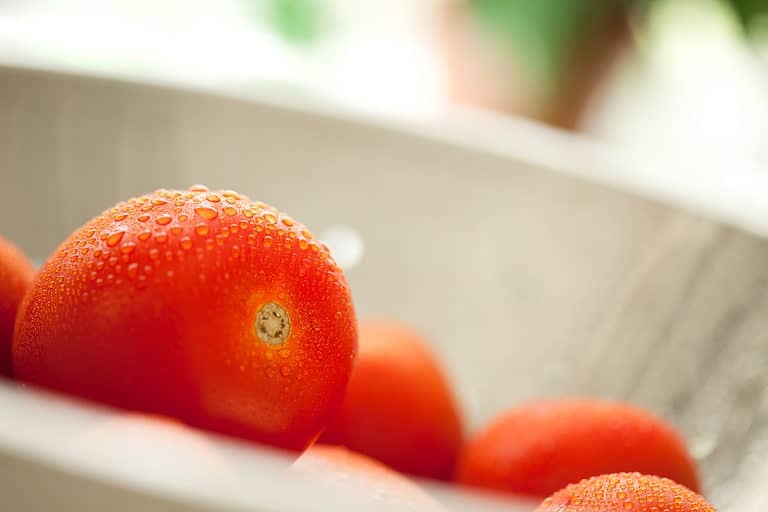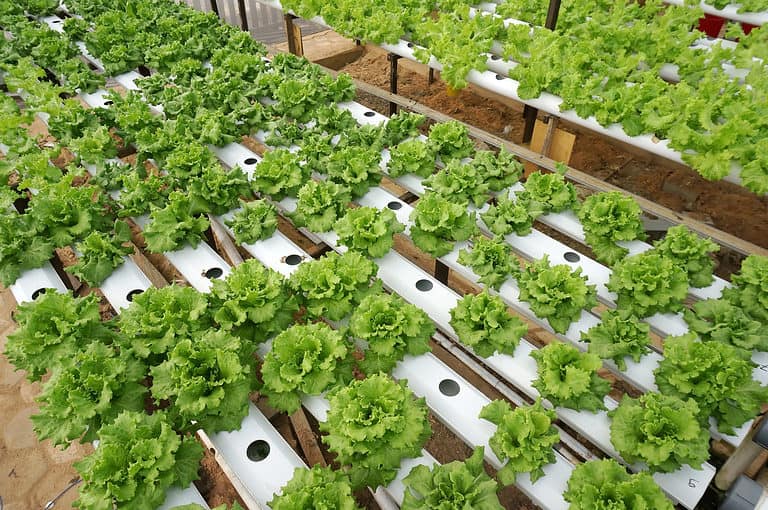How to Take Care of Chickens for Happy, Healthy Hens

Are you contemplating embarking on an enriching journey of raising your own chicken flock? If so, you’re in for a rewarding experience filled with joy, challenges, and invaluable learning opportunities. But did you know that raising a flock involves more than just feeding chickens and collecting eggs? It requires understanding their needs, providing them with a comfortable living space, and ensuring their health and happiness. Let’s explore the details of “how to take care of chickens”, from understanding the legalities and space requirements to choosing the right breed, feeding, and maintaining the health of your flock.
Key Takeaways
Familiarize yourself with local zoning laws and assess available space before starting a flock of chickens.
Select the right breed for your needs, considering factors such as climate, purpose and preferences.
Set up a robust coop with adequate ventilation, insulation and protection against predators. Provide balanced nutrition & water. Maintain regular cleaning routines to keep chickens healthy & disease-free. Establish pecking order & integrate newcomers carefully while forming strong bonds through interaction & providing safe free range opportunities.
Starting Your Flock: Legalities and Space Requirements

Raising chickens requires you to abide by certain laws and regulations before getting started. These rules are not only about having enough space for your flock, but also supplying them with the necessary food and water while ensuring compliance with local zoning ordinances- failure to do so could result in hefty fines or court cases. It is important then, when raising chickens either as egg producers or meat suppliers, that there be adequate space available. This guarantees a comfortable life for the poultry as well as profitable eggs/meat production. Providing sufficient nutrition through proper foods will help ensure healthy growth among your birds overall!
Know Your Zoning Laws
Staying abreast of local ordinances concerning keeping chickens is essential to keep up with the regulations for ethical and lawful poultry raising. These rules can vary significantly between areas, often specifying how many chickens you are allowed to have on your property or in a coop, where it should be situated and what breeds of fowl may be held. Not complying with these laws might result in penalties such as fines, removal orders or even legal action, especially when hatching eggs.
To obtain info about said restrictions relevant to chicken rearing, you can explore Municode’s city code database that gives complete details regarding permissible numbers of birds kept along with instructions for size/location parameters belonging to their accommodations (coops). For Rhode Island residents particularly looking out for changes in policies, they must regularly monitor county websites. Engage actively during neighborhood meetings & also subscribe to newsletters providing news on related municipal codes & regulations pertinent thereto!
Assessing Your Space
When planning on raising chickens, assessing the available space is a must. The minimum amount of floor area in the coop that each chicken should have has been suggested to be 3 square feet – 2-3 sq ft being advised overall. This ensures proper comfort and health for young chicks as they develop into hens who can lay eggs, even green ones!
For smaller backyards, usually it’s preferable to raise around three or six chickens with no less than 4 sqft per bird indoors and outdoors combined. As you consider this factor remember there needs to be enough room both within their enclosure, such as nesting areas, where female birds may settle comfortably. But also from potential predators that could endanger your new feathered friends. Ultimately creating a safe environment for these chicks means taking into account every detail so they may enjoy laying eggs without any risk at all!
Selecting Your Chickens: Choosing the Right Breed
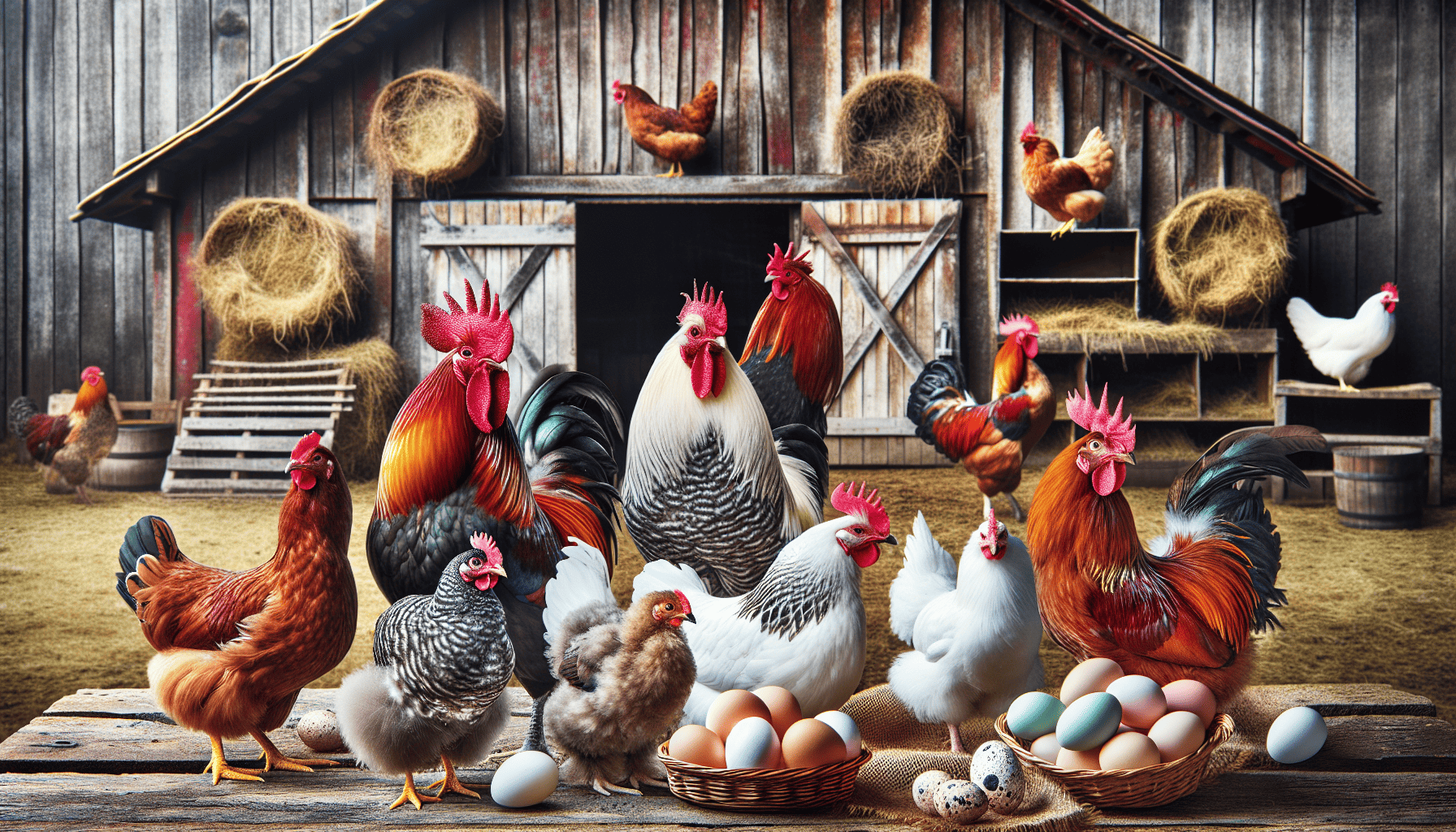
Choosing the right breed of chicken from the many options with their long and fascinating histories may seem daunting. We are here to make that process easier by taking into account several aspects such as your location’s climate, what purpose you want for keeping chickens (eggs or meat production) and any personal preferences regarding appearance and temperament of a certain breed.
Chicken breeds can be divided into three main types: egg layers which are renown for high-yield eggs, those bred mainly for their excellent meats, then dual-purpose varieties specialized in both areas, laying eggs while providing high quality protein sources. Establishing why exactly is it that you wish to keep chickens will help determine which type would fit best given its specific uses/purposes within your flock system.
Best Breeds for Egg Layers
If keeping chickens is done for the main purpose of egg production, then you should focus on breeds renowned for their plentiful ability to lay eggs. For instance, there are some that produce a lot but with basic sizes and colors. To others, which give out lesser numbers but have unique hues or shapes. The Brahma chicken breed can be noted as one example since it usually lays its eggs from October up until May.
On the other hand, Ameraucana gives approximately 250 blue eggs per annum, Sussex provides light brown ones amounting about 250 yearly, Jersey Giant has large brown-colored ova during its 260 annual laying times while Bielefelder offers similarly big kinds around 230 each year respectively. These types demonstrate how impressive numerous poultry breeds may be when it comes down to producing topnotch quality shells efficiently over time consistently.
Consider Egg Laying Needs
When deciding which breed to choose, it’s wise to consider its egg-laying qualities. You may have a preference for the size or color of eggs laid by different breeds. All these details should be taken into account when selecting your hen type. As far as usage goes, if there is consistent demand for eggs in your household, then go with one that lays regularly.
It’s essential not to forget that age and external factors are often what influence how much an individual bird will lay – so don’t overlook such things while picking out a particular breed! Factors like nutrition and environmental conditions play their part too, make sure the chosen kind lines up with your own unique requirements around egg production before making any decisions about birds kept onsite.
Dual Purpose Versus Specialty Breeds
If you’re looking to rear chickens for both eggs and meat, dual purpose breeds should be your go-to choice. Varieties like Plymouth Rock, New Hampshire, Chantecler and Rhode Island Red are known for providing good amounts of eggs as well as maturing in a size fit for consumption purposes. For instance, the Dorking breed is renowned when it comes to being cooked on one’s dining table while the New Hampshires have been mostly bred keeping their potential use in mind during meal time experiences.
On another note, unique & rare chicken varieties that boast unusual egg colors or exceptional features such as rarity may not always lay heaps of eggs nor reach large sizes but can make great additions to any poultry family if desired!
Then. Regardless of whether you decide upon an all-rounder type or something more specific – selecting a suitable fowl based on your own needs will certainly guarantee success with these feathered friends just remember this especially applies within larger flocks!
Setting Up the Perfect Coop
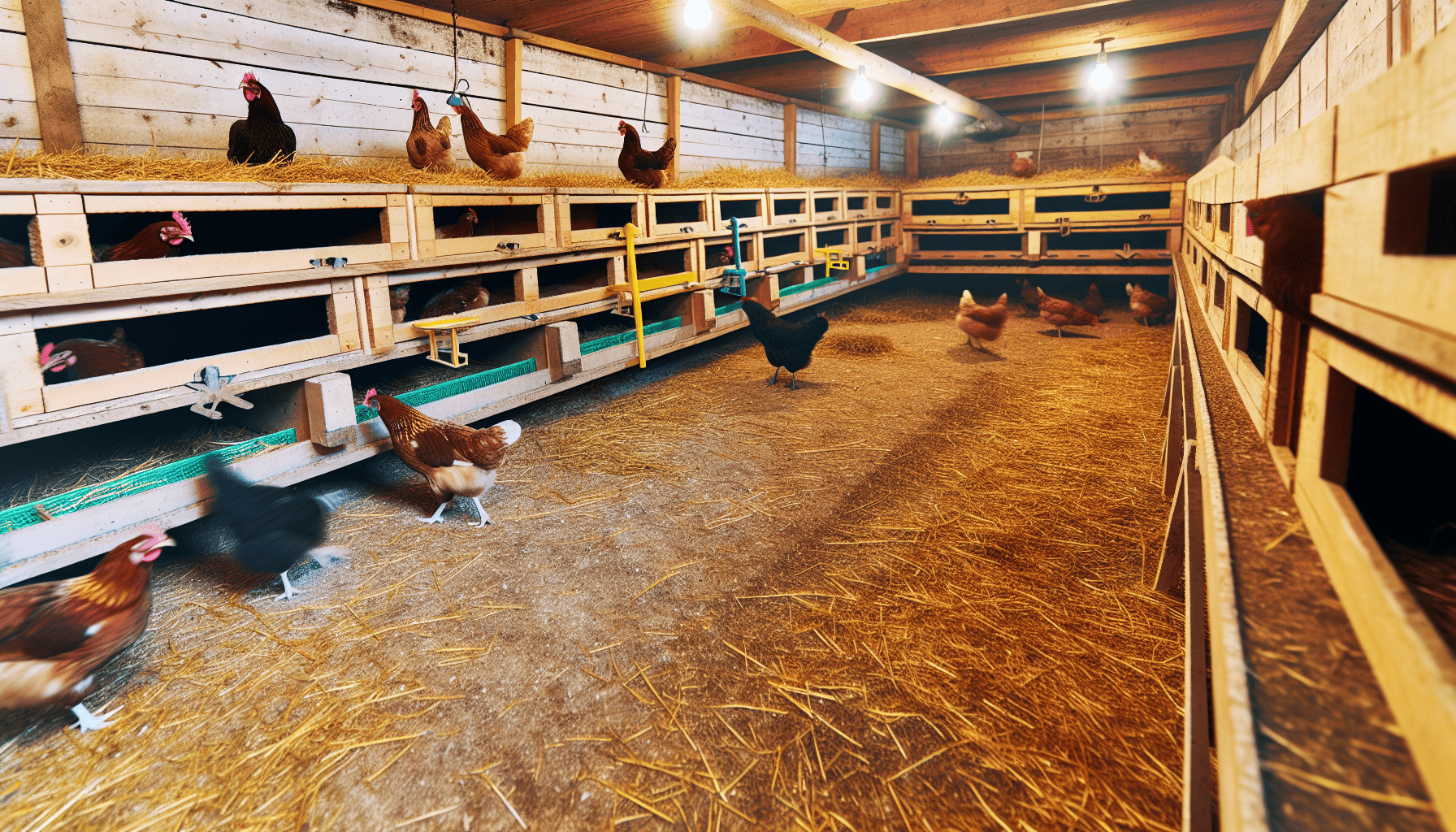
After considering the legal aspects, area specifications and type of chicken needed, setting up a great coop follows. A secure house is essential for their health and safety. To provide your chickens with a comfortable atmosphere where they are able to lay eggs, rest at night as well as take protection from predators or adverse weather conditions.
For an ideal environment that meets all requirements, it should have strong construction. Proper airflow along with easy cleanup abilities plus enough space per bird (approximately 2-3 square feet) offering them natural nesting boxes and roosting bars inside the coop. This must be fulfilled for every single breed of chicken in order to meet egg production goals set forth by you!
Coop Essentials
When constructing a coop, there are some important elements to keep in mind for making it safe and comfortable for your chickens. Good ventilation is paramount as chickens produce large amounts of dust which can affect their respiratory health without proper aeration. Insulating the housing will also shield them from extreme weather conditions. Protection against predators should be taken into account with strong doors and windows installed securely on the structure.
The inside must take chicken comfort and wellbeing seriously too. Thus it should provide at least two or three square feet per bird plus suitable roosting bars designed for natural sleeping habits while nesting boxes give hens an ideal place to lay eggs safely.
Nesting Boxes and Roosts
A chicken coop should always have nesting boxes, as these provide hens with a comfortable area in which to lay their eggs. It is suggested that there be one box for every three to five chickens so they do not become competitive over the space available. It helps keep eggs clean and makes them easy to collect too! Another essential part of any good hen house are roosting bars. This serves both as a secure place where chickens can rest off the ground while also helping retain body heat during wintery conditions when all huddling together on top of each other. The roosts must ideally be placed above the level of nesting boxes since sleeping inside may cause dirtiness within an eggshell or two!
Feeding Your Flock: Nutrition and Water

It is essential for the health, production and overall welfare of your flock to provide them with an appropriate diet. Chickens require a well-rounded food regimen which should include proteins, carbohydrates, vitamins and minerals. What kind of feed you choose mainly depends on the age group and breed of chickens that you have. Chicks need starter feed high in protein while laying hens call for extra calcium due to egg production needs. Also crucial is offering clean drinking water all day long as it helps digestion processes besides temperature control plus contributing to successful egg outputting from hens. For instance, when temperatures get hot, easy access to freshwater becomes even more necessary since chicken can quickly dry out without enough hydration sources nearby.
Daily Diet Details
Chickens require a balanced diet that is specific to their age and purpose. For example, young chicks need a high-protein starter feed while laying hens should be given layer feed with added calcium for egg production. A variety of commercial chicken feeds exist on the market in order to provide chickens with all the essential nutrients they need at different life stages such as: Starter Feeds, Grower Feeds, Layer Feeds and BroilerFeeds.
It is very important to choose an appropriate type of feed according to the needs of your chickens – this will ensure they are healthy and productive. You could also supplement their diets by providing them fresh vegetables like lettuce or spinach that can boost nutrient intake without filling them up too much! Lastly, it’s always better than offering kitchen scraps (in moderation) which contain potentially harmful bacteria, so exercise caution when feeding these types of food items instead stick with specifically formulated nutrition made just for poultry.
Treats and Supplements
Chickens rely primarily on feed for their nutrition, but treats and supplements can also add to their diet. You can provide them with vegetables, grains or insects as an extra snack which not only adds flavor to the food they eat but also offers essential nutrients too. These should still take up a minor portion of your chickens’ diets though, never replace regular feed with snacks!
Supplements such as oyster shells are useful additions especially if you have laying hens since it serves as additional calcium intake that’s important in maintaining egg production. Probiotics work well at bolstering the immune system while enhancing digestion. Both things are beneficial for any chicken owner looking after their flock’s health and wellbeing.
Health and Hygiene: Keeping Your Chickens Clean and Disease-Free
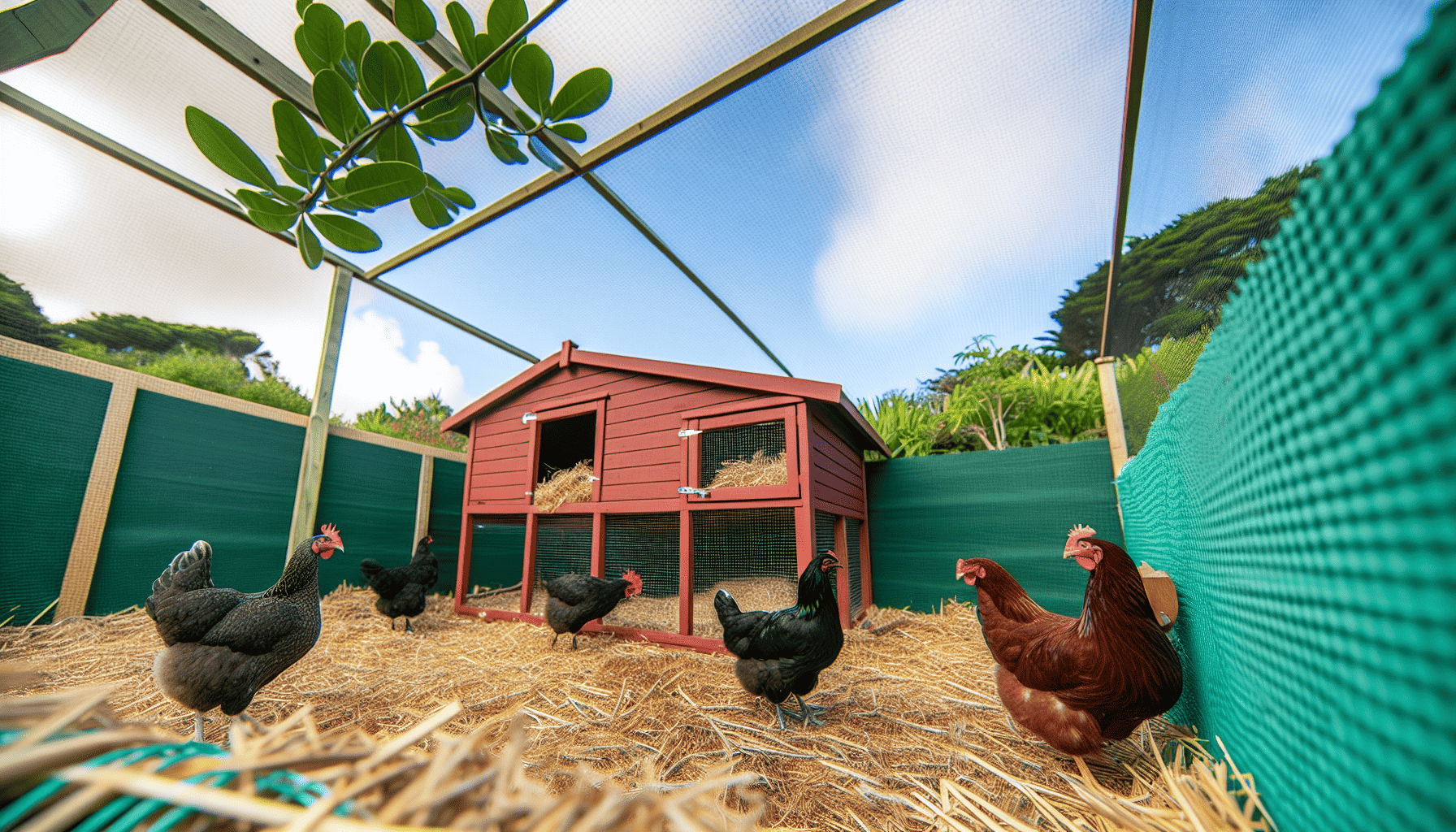
Caring for the well-being of chickens is crucial to maintain their productivity and health. In a group, diseases can be rapidly transmitted if proper measures aren’t taken right away. Keeping things in check such as routine cleaning activities, good nutrition plans and conducting regular medical evaluations are all techniques that help prevent disease from spreading through your flock of birds.
A normal upkeep process will guarantee that your coop structure remains sanitized while also keeping it neat too. Here’s what you should do: Remove droppings on an everyday basis from both within the poultry house or surrounding yard area. Make sure to replace bedding frequently so everything stays clean and fresh at all times, then thoroughly disinfect any areas needed inside the chicken coup with suitable products accordingly. Practice excellent personal hygiene habits like washing hands before/after handling those little feathered friends often helps protect against potential threats as well. Keep surveillance open regarding indications of parasites (such as mites/lice) appearing around & take necessary steps to prevent them expanding Over time.
Follow these methods which would essentially create an environment free for hazard risk factors + provide healthy living requirements ideal surroundings!
Regular Cleaning Routines
Maintaining a clean coop is vital for the well-being of your chickens. Not only does it help ward off illnesses and pests, but also provides an inviting atmosphere that will make them feel right at home. For this purpose, you should give your chicken coop a thorough cleaning about once every month using these steps:
Clean out all bedding material and droppings from inside the enclosure..
Utilize disinfectant to sterilize all areas within the space – this eliminates any bacteria or parasites in existence there previously
Give it one final rinse with fresh water so as not to leave behind any residue. Then let air dry before adding new bedding layers and permitting hens back into their accommodation.
When following such measures regularly, you can guarantee that both your poultry’s health stays intact while giving their house proper care too! Also ensure to properly sanitise nesting boxes on occasion since they are especially important habitats for young chicks or egg laying hens – doing likewise prevents contagions being spread therein.
Monitoring for Illness
Checking your chickens for signs of sickness is an integral part in keeping them healthy. Disease-causing organisms, poor nutrition, tension and injuries can all lead to various forms of illness in the birds. Early identification will better enable successful treatment and recovery chances.
It’s vital to spot any behavioural changes such as decreased appetite, unusual droppings or ruffled feathers. Also, if they are having difficulty standing up/walking or there has been a decrease in egg production it’s important that you take action quickly by isolating the unwell chicken from other members of their flock. It would be wise to seek veterinary care without delay when concerning symptoms arise within your poultry population.
Social Structures and Integration
For a harmonious chicken coop, it’s essential to recognize the flock’s social structure. Chickens have their own ranking system which dictates each individual bird’s status in the group. This is known as ‘the pecking order’. To help manage your chickens effectively, you should understand how they establish these rankings and its effects on behaviors within your flock. When bringing new members into an existing community of birds, extra caution must be taken – introducing new birds can alter those hierarchies quickly, so special attention needs to be given during the introduction process to avoid unnecessary stress or aggression between old and fresh inhabitants.
Establishing the Pecking Order
The pecking order is a form of power structure that chickens use within their flock. Chickles employ various tactics to set up this system, such as head-pecking and displaying dominance behaviors. Comprehending the hierarchy can assist in regulating your group effectively, even forecasting what actions they may take.
Looking after the organization includes providing enough amenities for all members, like food and water areas. Watching out for oppressive or ill-mannered behavior among them. Intervening when needed – knowledge about it all helps preserve harmony inside the flock while stopping tension and harms from occurring between individuals.
Integrating Newcomers
When introducing fresh birds, especially chickens, to an existing flock, it is necessary to do so gradually in order to reduce anxiety and hostile behaviour. An effective way of doing this would be keeping the new birds separated but visible within a separate pen, allowing them time to get acquainted before full integration. Throughout this process, close supervision should take place. If any signs of aggression become evident, swift intervention must occur.
Remember that fully accepting these newcomers can often be lengthy, so extra tenderness ought to go towards acclimatising them better with their current environment. Make sure you are ready to intervene quickly should one or more present aggressive actions against the recent arrivals.
Enjoying Your Chickens: Interaction and Free Range Time
For successful raising of chickens, a coop to protect them and clean water as well as nutritious food are essential. What’s more important is the fact that it should also be fun for both parties – allowing your birds to enjoy expressing their natural behaviors while you take pleasure in watching, interacting with them or just being around when they cluck softly.
Chickens display great intelligence and social aptitude, which makes bonding with their caregivers much easier if interacted frequently. It’s encouraged that time spent outdoors by providing free-range opportunities would mean an enriching experience not only physically but mentally too enabling all poultry keepers alike making sure that keeping these animals rewarding even after years passed since taking care of one’s flock started out!
Bonding with Your Birds
Developing a bond with your chickens can be highly rewarding. Chickles are social animals and have the capacity to create close connections with their handlers. Taking part in activities such as hand-feeding them, talking softly to them, and dedicating time to spending together will assist in building confidence among you both which will lead to forming a strong relationship between each other over time.
Having an intimate attachment not only brings enjoyment when keeping chickens, but it also aids in improving the wellbeing of your feathered friends. Those who exhibit this kind of closeness exhibit this kind of closeness. Look much healthier than those that don’t, they appear happier too whilst being more productive on top of everything else! Chickens that trust you allow handling easier even from far away distances due to stronger bonds developed through consistent interaction.
Safe Free Range Practices
When caring for chickens, free ranging is an essential part of the process. This gives them a chance to act out their natural behaviours like digging and dust bathing while also getting both physical exercise and mental stimulation which improves their wellbeing. Although this type of activity can be risky due to predators being around, you must provide your feathered friends with a protected outdoor environment where they can roam freely in safety – whether it’s by fencing off an area or building some kind of pen. Always keep watch when allowing your flock time outside so that any potential danger may swiftly be dealt with accordingly!
Summary
Having a flock of chickens in the backyard can provide us with loads of joy as well as fresh eggs, meat and closeness to nature. To make sure our hens are contented and healthy, we must be familiarized with local regulations, pick an appropriate breed for their coop followed by regular care-taking practices such as providing free-range access. This way not only will our birds flourish but also enhance your relationship with them making this venture even more pleasant!
Frequently Asked Questions
How do you take care of a chicken for beginners?
As a novice in chicken care, it’s essential to have a clean and orderly coop with plenty of food and water for the birds each day. You should furnish them an enriched environment with outdoor time at dawn followed by bringing them back into their enclosure before sunset. Then lastly cleaning the home regularly every week.
Are chickens easy to take care of?
Taking care of chickens requires a regular daily routine, such as providing food and water for them to opening and closing the coop door. Not only that, but they can also give fresh eggs and help you with your composting tasks! All in all, looking after chickens is straightforward with minimal effort needed from the owner.
What are 3 disadvantages of raising backyard chickens?
Keeping chickens in one’s backyard can be quite rewarding, but it entails added responsibility of everyday upkeep and presents numerous challenges like the risk of spreading disease, loud noise levels, noisome odors, presence of parasites/pests as well as controlling waste management.
Are chickens expensive to keep?
Maintaining a flock of chickens may not be too expensive, as the total outlay over five years could max out at about $69 monthly.
What are the legal considerations for keeping chickens?
Investigating the zoning restrictions in your area is a must when you want to keep chickens, since it will determine how many and which kind of birds are allowed as well as where they can be located.



